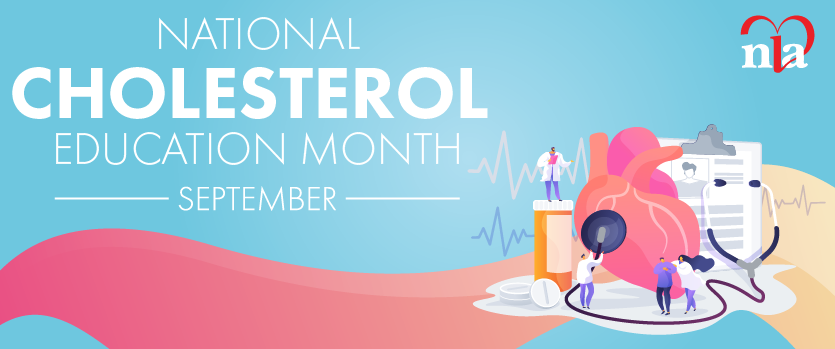From Everyday Health: High Cholesterol in the Family: An Interview With Matt Ito, PharmD
By Jennifer J Brown, PhD, Everyday Health Staff Writer
Matt Ito, PharmD, is the president of the National Lipid Association for a very good reason. He has inherited a dangerously high cholesterol condition called familial hypercholesterolemia, or FH, which affects more than 600,000 people in the United States.
Dr. Ito puts together educational meetings and classes about cholesterol for health care providers, and the association's web site Learn Your Lipids offers information on inherited high cholesterol for consumers. One of Ito's projects, he said, is “looking at health information technology to improve how many know their lipid levels and get them to goal, and if not, change medication or improve adherence.”
Ito's advice on keeping cholesterol levels under control to protect your heart health comes from a very personal point of view because he's had to deal with familial hypercholesterolemia since his teen years.
A Heart Disease Risk You May Not Know You Have
Ito first found out that he had inherited high cholesterol when he was only 14 years old. “My mother happened to get her cholesterol checked. She has a family history of premature cardiovascular disease, and she was diagnosed with FH," he recalled.
Both Ito and his two older brothers then got tested. He had inherited high cholesterol, they did not. His younger sister has it as well, they later learned. In families with familial hypercholesterolemia, there's a one in two chance that a child will have the condition. “I passed it on to my daughter, who is 18 now, and we found out when she was 10. My son does not have FH,” said Ito.
When Ito and his family found out that they had FH, statins were not yet available as a treatment for high cholesterol. “Statins didn’t come out until 1986 or so when I was getting out of pharmacy school,” he explained.
Initially, children with the condition were treated with dietary restrictions on fat intake and were told to exercise. Then bile acid sequestrants, one of the first of the cholesterol-lowering drugs, became available — though, Ito noted, not for children.
“Now, I’m on triple therapy,” he said. “A statin, a cholesterol absorber — Zetia — and a bile acid sequestrant,” he explained. All these medications are now FDA approved for children, too.
Ito sees both a cardiologist and a primary care doctor. Now he gets his cholesterol tested every 6 months, although when a patient is first started on medication they have to be checked more frequently.
Ito suffered a major heart attack in January of this year and had triple bypass surgery. Although he was on two medications at the time, his LDL cholesterol, or bad cholesterol, was still very high — 250 mg/dL, which is twice the normal level. That's why he is now on three medications.
Lifestyle Choices to Help Keep Cholesterol Down
If your cholesterol levels meet the following guidelines, they're considered healthy:
- LDL (bad cholesterol) - below 100 mg/dL
- HDL (good cholesterol - above 40 mg/dL for men or 50 mg/dL for women
If they're higher, you're not alone. As many as two out of every three American adults have high cholesterol, according to the U.S. Centers for Disease Control. While there are effective medications, Ito said that unfortunately, many with inherited high cholesterol do not get to their LDL goal, even with medications.
The first way to begin getting control over your cholesterol levels is with diet. “I’m very strict about fat and cholesterol intake,” Ito said. After the heart attack, he became even stricter with his diet. “I cut out red meat and eat only chicken and fish,” he said. He also reduced his sodium intake to below 2,000 mg a day. “That is a challenge!” Ito acknowledged, adding, “You really have to read labels.”
Changing the way you eat can be daunting, said Ito. “Cooking at home is a challenge because others at home don’t have FH," he said.
To help keep his cholesterol levels down, he also exercises at least 30 minutes almost every day for cardiovascular fitness. “I do have heart failure now, so part of improving heart function is to keep up with aerobic training. In general, with FH you have to also control blood pressure and diabetes, and not smoke, because FH increases — by 3 to 5 times — the risk of heart disease,” Ito said.
Using His Medical Background to Manage His Condition
Does his pharmaceutical and medical knowledge help Ito successfully manage his inheritied high cholesterol? “Definitely!” he said. “What is tough is for patients who don’t have an understanding of how disastrous this condition can be. Having medical knowledge really helps.”
He understands that many people with familial hypercholesterolemia will still go on to have heart attacks, like he did, or a stroke. “It is tough to overcome lifelong exposure to high cholesterol,” Ito said, which begins at birth for those with inherited high cholesterol.
By teaching pharmacy and nursing students, Ito helps raise awareness about inherited high cholesterol in his community. “One of my goals after my heart attack was a focus on FH,” he said. In the next May/June meeting of the National Lipid Association there will be a new focus on familial hypercholesterolemia.
Through the National Lipid Association, Ito works with the FH Foundation as well. “My hope is that we can reach the lives of many and get information out there so they will get tested, and get family to get tested too, if positive. It can be passed on easily to other family members,” said Ito.
September is National Cholesterol Awareness Month, so why not get your cholesterol levels tested, along with your family? What you find out could make a big difference for your heart health.






.jpg)
.png)










